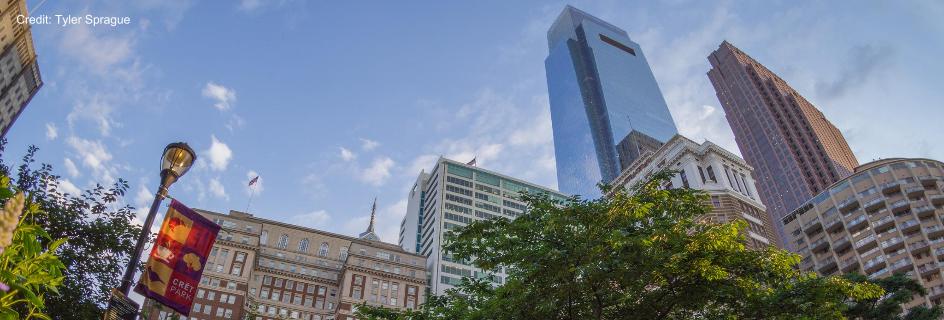- About GPA
- Global Events
- GLOBAL NEWS FROM PHL
- Global Directory
- World Heritage City
- Sustainable Development Goals (SDGs)
- Global Philadelphia Role on Sustainable Development Goals
- Completed Sustainable Development Goals
- SDG#1: No Poverty
- SDG #2: Zero Hunger
- SDG#3: Good Health & Well-Being
- SDG#4: Quality Education
- SDG#5: Gender Equality
- SDG#6: Clean Water & Sanitation
- SDG#7: Affordable and Clean Energy
- SDG #8: Decent Work and Economic Growth
- SDG #9: Industry, Innovation, and Infrastructure
- SDG#10: Reduced Inequalities
- SDG#11: Sustainable Cities and Communities
- SDG#16: Peace, Justice and Strong Institutions
- SDG#17: Partnerships for the Goals
- Press
Home ›
Philly Tech Week: ArtsTechPhilly Presents "Access + Art&Tech"
Posted on April 21, 2014

Susanne Chung, for GPA -- On April 10, Philadelphia Tech Week 2014 presented “Access + Art&Tech,” a panel discussion hosted by Uri Pierre Noel of ArtsTechPhilly at Drexel University’s URBN Center (3501 Market St.).
The featured panelists were Georgia Guthrie, director of the Hacktory, Jennifer Scott, artist, curator and CEO of JSCOTT LLC, Neville Vakharia, assistant professor and research director for the Arts Administration of Drexel University’s Westphal College of Media Arts and Design, and Thaddeus Squire, founder of Culture Works Greater Philadelphia. The topics of discussion were based on the issues of access in arts and technology and their social impact on the community.
One of the issues discussed was the digital divide in Philadelphia. Over 50 percent of Philadelphians don’t have internet and many do not own a computer. Small communities such as Mantua and Powelton are being taken over by the expansion of large corporations and surrounding universities. These communities are considered to be part of a “tech desert,” where access to technology is limited due to socioeconomic class divides. Drexel and the University of Pennsylvania may be high tech corridors, but several blocks away from the universities lie communities that still rely on paper flyers to spread the word about events. Although companies and people are now pushing out information through the web, they cannot reach an audience without access to the internet.
During the discussion, Scott and Guthries agreed that access to technology and art depend largely on the social sphere of the individual. A person’s background, their income level and the type of content they are interested in accessing are all factors. People that live in a wealthy area with a high income may have access to more information purely because they are able to purchase and leverage the tools needed for the most beneficial use of that information. As for accessibility to art, there was a general consensus across the panel that one’s social sphere would be the determining factor.
“If you didn’t grow up in a social sphere that values art or go to galas as a habit, it would be hard to appreciate that form of art because what is appreciated in one social sphere may not be appreciated in another,” Scott said.
“For each kind of art, there is a following around it. They might not always overlap or interact with one another,” said Guthrie, about the different types of art that different social spheres produce.
Squire received many nods of approval when he noted that although “the reach that technology can afford is very seductive and powerful for very good reasons, we also have to balance that with a sense of valorization and attention to hyper local economies.”
The panel voiced a concern that most companies are not paying attention to small communities. The primary goal of most large corporations is to benefit the people that have easy access to technology, the web and its contents.
The panelists concluded with a hope that in the future, there will be an easier way to bridge the gap of accessibility between Philadelphia's small communities and the large corporations that dominate areas of the city. Until then, however, the best they could hope for was that more voices can join the discussion to find solutions for easier access to technologies through the meet ups hosted by ArtsTechPhilly across the country.
Photo courtesy of Fast Forward Philly.







